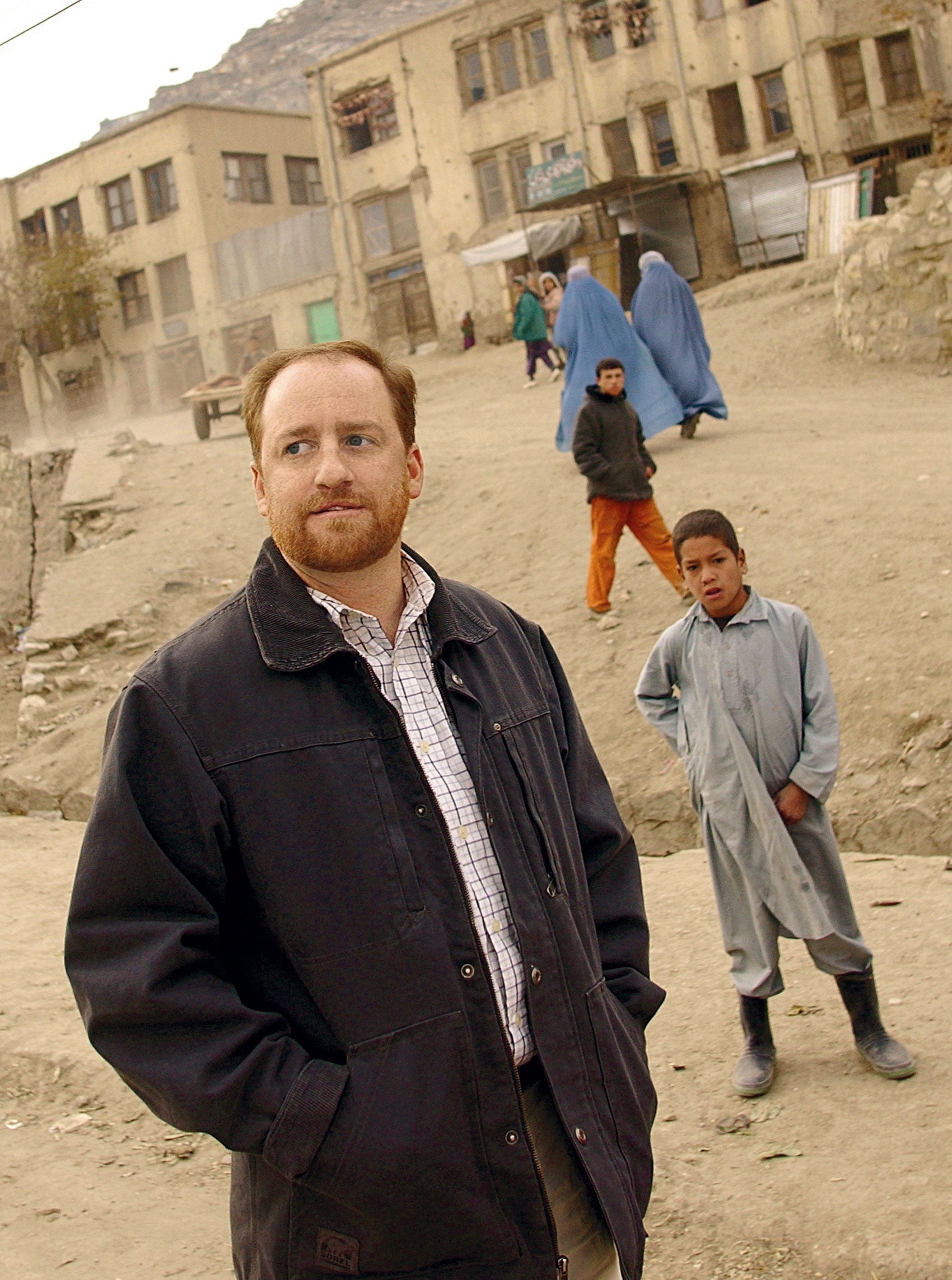Tackling legal challenges in historic elections in Afghanistan
On a monday in November, Scott Worden ’00 was confined to his office in Kabul, Afghanistan, unable to leave the building until 9 p.m., not because he was working late but because security restrictions forced him to stay. A series of car bombs had exploded outside. Eight people were dead, eight others injured.
According to Worden, that kind of violence isn’t the norm. “Generally speaking, Kabul is a very safe city,” he said, “very friendly and welcoming.”
He moved to Afghanistan last June to become the U.N.’s senior legal adviser to the Joint Electoral Management Body–an Afghan-U.N. commission that oversees the country’s elections.
The JEMB played an essential role in September’s parliamentary election, which was a democratic landmark for the country. Some 5,800 candidates ran for 249 seats in parliament and for 34 on provincial councils, and Worden and his colleagues were charged with overseeing many of the logistical and legal challenges involved. He has helped develop processes for polling, nominating candidates and registering voters.
One major challenge is that an estimated 80 percent of the country is illiterate, so the commission had to devise ways to make the process intelligible to voters. “Each ballot has a candidate’s name, but it also has a picture and a symbol that’s unique to the candidate,” Worden explained. “So even if you can’t read, you can recognize either the candidate or their symbol.”
The election results stirred controversy because the new legislative body will include former militia leaders and accused drug lords. “There have also been some surprise winners,” Worden noted. “In a country that’s really conservative, several women wound up winning their seats outright rather than through the quota system,” he said, referring to laws that reserve a minimum number of seats for women.
While the work gave him a close-up view of election law and logistics, he says it didn’t offer him as much insight into the political landscapes of Afghanistan. “Ironically, my position as a legal officer and my placement in Kabul have kept me out of the fray of politics,” he wrote in an e-mail to friends.
He lives in a housing area with a “cozy walled garden with grapevines, 24-hour armed guards and a rent that would hold its own in Manhattan,” he said. “A lot of times you’re restricted to going between your guesthouse and your office and maybe one or two restaurants. [I]t can be very confining.”
It’s a far cry from the New York law firm where he worked for three years after graduation. His career swerved in 2003 when he won a fellowship that allowed him to move to Cambodia to help draft anticorruption legislation in Phnom Penh. That job helped prepare him for the work in Afghanistan.
“Issuewise, there are a lot of similarities between Afghanistan and Cambodia,” Worden said. “They have a similar history of conflict, and their legal systems are both in shambles. And in that sense it wasn’t that surprising what I encountered professionally here [in Kabul].”
In his work at the New York firm, Worden focused on international legal issues, and while this interest has remained relatively constant in his work, the setting has changed dramatically. “It comes down to risk taking,” he said. “It’s difficult to make that first step from something that’s more established when your career path is all set out for you.”
With security lockdowns and streets broken by car bombs, the path hasn’t been entirely smooth. Eventually, he plans to return to the United States to work in foreign policy. In the meantime, he says, the firsthand experience has been invaluable.
“Coming here, I’m surprised at how energetic people are, and how committed they are to making reforms in government,” he said. “I think there is a lot of potential here, and I’m not sure that gets reflected accurately in the media.”
Even the car bombs didn’t shake this belief. “Most times, the exhilaration outweighs the exhaustion,” he said, just hours after the November attack.
